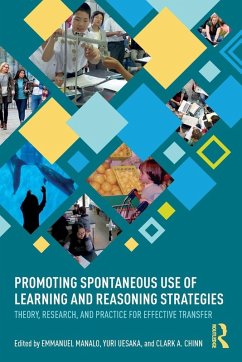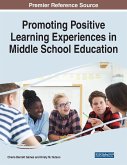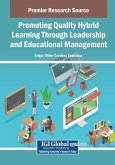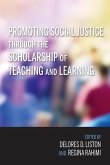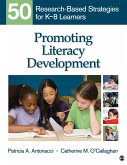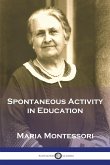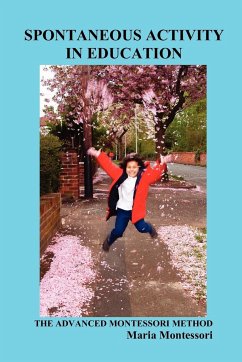Promoting Spontaneous Use of Learning and Reasoning Strategies
Theory, Research, and Practice for Effective Transfer
Herausgeber: Manalo, Emmanuel; Chinn, Clark A.; Uesaka, Yuri
Promoting Spontaneous Use of Learning and Reasoning Strategies
Theory, Research, and Practice for Effective Transfer
Herausgeber: Manalo, Emmanuel; Chinn, Clark A.; Uesaka, Yuri
- Broschiertes Buch
- Merkliste
- Auf die Merkliste
- Bewerten Bewerten
- Teilen
- Produkt teilen
- Produkterinnerung
- Produkterinnerung
In this book, scholars from around the world develop viable answers to the question of how it may be possible to promote students' spontaneity in the use of learning and reasoning strategies.
Andere Kunden interessierten sich auch für
![Promoting Positive Learning Experiences in Middle School Education Promoting Positive Learning Experiences in Middle School Education]() Promoting Positive Learning Experiences in Middle School Education153,99 €
Promoting Positive Learning Experiences in Middle School Education153,99 €![Promoting Quality Hybrid Learning Through Leadership and Educational Management Promoting Quality Hybrid Learning Through Leadership and Educational Management]() Promoting Quality Hybrid Learning Through Leadership and Educational Management151,99 €
Promoting Quality Hybrid Learning Through Leadership and Educational Management151,99 €![Promoting Social Justice Through the Scholarship of Teaching and Learning Promoting Social Justice Through the Scholarship of Teaching and Learning]() Delores D. ListonPromoting Social Justice Through the Scholarship of Teaching and Learning35,99 €
Delores D. ListonPromoting Social Justice Through the Scholarship of Teaching and Learning35,99 €![Promoting Positive Self-Esteem in Children Promoting Positive Self-Esteem in Children]() M. a. Terry J. WalkerPromoting Positive Self-Esteem in Children8,99 €
M. a. Terry J. WalkerPromoting Positive Self-Esteem in Children8,99 €![Promoting Literacy Development Promoting Literacy Development]() Patricia A. AntonacciPromoting Literacy Development68,99 €
Patricia A. AntonacciPromoting Literacy Development68,99 €![Spontaneous Activity in Education Spontaneous Activity in Education]() Maria MontessoriSpontaneous Activity in Education12,99 €
Maria MontessoriSpontaneous Activity in Education12,99 €![Spontaneous Activity in Education Spontaneous Activity in Education]() Maria MontessoriSpontaneous Activity in Education16,99 €
Maria MontessoriSpontaneous Activity in Education16,99 €-
-
-
In this book, scholars from around the world develop viable answers to the question of how it may be possible to promote students' spontaneity in the use of learning and reasoning strategies.
Produktdetails
- Produktdetails
- Verlag: Routledge
- Seitenzahl: 366
- Erscheinungstermin: 2. Oktober 2017
- Englisch
- Abmessung: 234mm x 156mm x 20mm
- Gewicht: 556g
- ISBN-13: 9781138680647
- ISBN-10: 1138680648
- Artikelnr.: 49437353
- Herstellerkennzeichnung
- Libri GmbH
- Europaallee 1
- 36244 Bad Hersfeld
- gpsr@libri.de
- Verlag: Routledge
- Seitenzahl: 366
- Erscheinungstermin: 2. Oktober 2017
- Englisch
- Abmessung: 234mm x 156mm x 20mm
- Gewicht: 556g
- ISBN-13: 9781138680647
- ISBN-10: 1138680648
- Artikelnr.: 49437353
- Herstellerkennzeichnung
- Libri GmbH
- Europaallee 1
- 36244 Bad Hersfeld
- gpsr@libri.de
Emmanuel Manalo is a professor at the Graduate School of Education at Kyoto University, Japan. Yuri Uesaka is an assistant professor in the Division of Educational Psychology at the Graduate School of Education at the University of Tokyo, Japan. Clark Chinn is a professor in the Department of Educational Psychology at Rutgers University, USA.
Introduction (Emmanuel Manalo, Yuri Uesaka, & Clark Chinn)
Part 1: Theory
1. Eliciting and Building upon Student-Generated Solutions: Evidence from
Productive Failure (Manu Kapur, Ngan Hoe Lee, & June Lee)
2. Promoting Learners' Spontaneous Use of Effective Questioning:
Integrating Research Findings Inside and Outside of Japan (Yoshinori Oyama)
3. Learning from multiple documents: How can we foster multiple document
literacy skills in a sustainable way? (Marc Stadtler, Rainer Bromme, &
Jean-Francois Rouet)
4. How to Address Student's Lack of Spontaneity in Diagram Use: Eliciting
Educational Principles for the Promotion of Spontaneous Learning Strategy
Use in General (Yuri Uesaka & Emmanuel Manalo)
5. Obstacles to the Use of Learning Strategies after Training (and Some
Approaches to Overcome Them) (Christof Wecker & Andreas Hetmanek)
Part 2: Research
6. Second Language Vocabulary Learning: Are Students Cognitive Misers and,
If So, Why? (Emmanuel Manalo & Marcus Henning)
7. The Effect of Teaching Styles on Students' Learning Strategy Use and
Interest in Studying Science (Etsuko Tanaka)
8. Effects of Students' Perceptions of Test Value and Motivation for
Learning on Learning Strategy Use in Mathematics (Masayuki Suzuki & Yuan
Sun)
9. Applying Metacognition Theory to the Classroom: Decreasing Illusion of
Knowing to Promote Learning Strategy Use (Tatsushi Fukaya)
10. Preparatory Learning Behaviors for English as a Second Language
Learning: The Effects of Teachers' Teaching Behaviors During Classroom
Lessons (Keita Shinogaya)
11. Developing Regulation Strategies through Computer-Supported Knowledge
Building among Tertiary Students (Chunlin Lei & Carol Chan)
Part 3: Practice
12. Three Approaches to Promoting Spontaneous Use of Learning Strategies:
Bridging the Gap Between Research and School Practices (Shin'ichi Ichikawa,
Yuri Uesaka, & Emmanuel Manalo)
13. Coding Dosage of Teachers' Implementation of Activities Using ICAP: A
Video Analysis (Glenda S. Stump, Na Li, Seokmin Kang, David Yaghmourian,
Dongchen Xu, Joshua Adams, Katherine L. McEldoon, Matthew Lancaster, and
Michelene T. H. Chi)
14. Development and Improvement of a Learning Strategy Use Enhancement
Program: Use of Lesson Induction and Elaboration Strategies (Mikiko Seo,
Mengting Wang, Takeshi Ishizaki, Yuri Uesaka, & Shin'ichi Ichikawa)
15. Epistemic Design: Design to Promote Transferable Epistemic Growth in
the PRACCIS Project (Clark Chinn, Ravit Golan Duncan, & Ronald Rinehart)
16. Exploring the scope and boundaries of inquiry strategies: What do young
learners generalize from inquiry-based life science learning? (Ala
Samarapungavan, Jamison Wills, & Lynn Bryan)
17. PMC2E: Conceptual Representations to Promote Transfer (Cindy
Hmelo-Silver, Rebecca Jordan, Suparna Sinha, Yawen Yu, & Catherine
Eberbach)
18. Dude, Don't Start Without Me! Fostering Engagement with Others'
Mathematical Ideas (Noreen M. Webb, Megan L. Franke, Nicholas C. Johnson,
Angela C. Turrou, and Marsha Ing)
19. Supporting Teachers' Spontaneous Use of Talk Moves During Inquiry
Dialogue (Alina Reznitskaya, Ian A. G. Wilkinson, & Joseph Oyler)
Conclusion (Emmanuel Manalo, Yuri Uesaka, & Clark Chinn)
Part 1: Theory
1. Eliciting and Building upon Student-Generated Solutions: Evidence from
Productive Failure (Manu Kapur, Ngan Hoe Lee, & June Lee)
2. Promoting Learners' Spontaneous Use of Effective Questioning:
Integrating Research Findings Inside and Outside of Japan (Yoshinori Oyama)
3. Learning from multiple documents: How can we foster multiple document
literacy skills in a sustainable way? (Marc Stadtler, Rainer Bromme, &
Jean-Francois Rouet)
4. How to Address Student's Lack of Spontaneity in Diagram Use: Eliciting
Educational Principles for the Promotion of Spontaneous Learning Strategy
Use in General (Yuri Uesaka & Emmanuel Manalo)
5. Obstacles to the Use of Learning Strategies after Training (and Some
Approaches to Overcome Them) (Christof Wecker & Andreas Hetmanek)
Part 2: Research
6. Second Language Vocabulary Learning: Are Students Cognitive Misers and,
If So, Why? (Emmanuel Manalo & Marcus Henning)
7. The Effect of Teaching Styles on Students' Learning Strategy Use and
Interest in Studying Science (Etsuko Tanaka)
8. Effects of Students' Perceptions of Test Value and Motivation for
Learning on Learning Strategy Use in Mathematics (Masayuki Suzuki & Yuan
Sun)
9. Applying Metacognition Theory to the Classroom: Decreasing Illusion of
Knowing to Promote Learning Strategy Use (Tatsushi Fukaya)
10. Preparatory Learning Behaviors for English as a Second Language
Learning: The Effects of Teachers' Teaching Behaviors During Classroom
Lessons (Keita Shinogaya)
11. Developing Regulation Strategies through Computer-Supported Knowledge
Building among Tertiary Students (Chunlin Lei & Carol Chan)
Part 3: Practice
12. Three Approaches to Promoting Spontaneous Use of Learning Strategies:
Bridging the Gap Between Research and School Practices (Shin'ichi Ichikawa,
Yuri Uesaka, & Emmanuel Manalo)
13. Coding Dosage of Teachers' Implementation of Activities Using ICAP: A
Video Analysis (Glenda S. Stump, Na Li, Seokmin Kang, David Yaghmourian,
Dongchen Xu, Joshua Adams, Katherine L. McEldoon, Matthew Lancaster, and
Michelene T. H. Chi)
14. Development and Improvement of a Learning Strategy Use Enhancement
Program: Use of Lesson Induction and Elaboration Strategies (Mikiko Seo,
Mengting Wang, Takeshi Ishizaki, Yuri Uesaka, & Shin'ichi Ichikawa)
15. Epistemic Design: Design to Promote Transferable Epistemic Growth in
the PRACCIS Project (Clark Chinn, Ravit Golan Duncan, & Ronald Rinehart)
16. Exploring the scope and boundaries of inquiry strategies: What do young
learners generalize from inquiry-based life science learning? (Ala
Samarapungavan, Jamison Wills, & Lynn Bryan)
17. PMC2E: Conceptual Representations to Promote Transfer (Cindy
Hmelo-Silver, Rebecca Jordan, Suparna Sinha, Yawen Yu, & Catherine
Eberbach)
18. Dude, Don't Start Without Me! Fostering Engagement with Others'
Mathematical Ideas (Noreen M. Webb, Megan L. Franke, Nicholas C. Johnson,
Angela C. Turrou, and Marsha Ing)
19. Supporting Teachers' Spontaneous Use of Talk Moves During Inquiry
Dialogue (Alina Reznitskaya, Ian A. G. Wilkinson, & Joseph Oyler)
Conclusion (Emmanuel Manalo, Yuri Uesaka, & Clark Chinn)
Introduction (Emmanuel Manalo, Yuri Uesaka, & Clark Chinn)
Part 1: Theory
1. Eliciting and Building upon Student-Generated Solutions: Evidence from
Productive Failure (Manu Kapur, Ngan Hoe Lee, & June Lee)
2. Promoting Learners' Spontaneous Use of Effective Questioning:
Integrating Research Findings Inside and Outside of Japan (Yoshinori Oyama)
3. Learning from multiple documents: How can we foster multiple document
literacy skills in a sustainable way? (Marc Stadtler, Rainer Bromme, &
Jean-Francois Rouet)
4. How to Address Student's Lack of Spontaneity in Diagram Use: Eliciting
Educational Principles for the Promotion of Spontaneous Learning Strategy
Use in General (Yuri Uesaka & Emmanuel Manalo)
5. Obstacles to the Use of Learning Strategies after Training (and Some
Approaches to Overcome Them) (Christof Wecker & Andreas Hetmanek)
Part 2: Research
6. Second Language Vocabulary Learning: Are Students Cognitive Misers and,
If So, Why? (Emmanuel Manalo & Marcus Henning)
7. The Effect of Teaching Styles on Students' Learning Strategy Use and
Interest in Studying Science (Etsuko Tanaka)
8. Effects of Students' Perceptions of Test Value and Motivation for
Learning on Learning Strategy Use in Mathematics (Masayuki Suzuki & Yuan
Sun)
9. Applying Metacognition Theory to the Classroom: Decreasing Illusion of
Knowing to Promote Learning Strategy Use (Tatsushi Fukaya)
10. Preparatory Learning Behaviors for English as a Second Language
Learning: The Effects of Teachers' Teaching Behaviors During Classroom
Lessons (Keita Shinogaya)
11. Developing Regulation Strategies through Computer-Supported Knowledge
Building among Tertiary Students (Chunlin Lei & Carol Chan)
Part 3: Practice
12. Three Approaches to Promoting Spontaneous Use of Learning Strategies:
Bridging the Gap Between Research and School Practices (Shin'ichi Ichikawa,
Yuri Uesaka, & Emmanuel Manalo)
13. Coding Dosage of Teachers' Implementation of Activities Using ICAP: A
Video Analysis (Glenda S. Stump, Na Li, Seokmin Kang, David Yaghmourian,
Dongchen Xu, Joshua Adams, Katherine L. McEldoon, Matthew Lancaster, and
Michelene T. H. Chi)
14. Development and Improvement of a Learning Strategy Use Enhancement
Program: Use of Lesson Induction and Elaboration Strategies (Mikiko Seo,
Mengting Wang, Takeshi Ishizaki, Yuri Uesaka, & Shin'ichi Ichikawa)
15. Epistemic Design: Design to Promote Transferable Epistemic Growth in
the PRACCIS Project (Clark Chinn, Ravit Golan Duncan, & Ronald Rinehart)
16. Exploring the scope and boundaries of inquiry strategies: What do young
learners generalize from inquiry-based life science learning? (Ala
Samarapungavan, Jamison Wills, & Lynn Bryan)
17. PMC2E: Conceptual Representations to Promote Transfer (Cindy
Hmelo-Silver, Rebecca Jordan, Suparna Sinha, Yawen Yu, & Catherine
Eberbach)
18. Dude, Don't Start Without Me! Fostering Engagement with Others'
Mathematical Ideas (Noreen M. Webb, Megan L. Franke, Nicholas C. Johnson,
Angela C. Turrou, and Marsha Ing)
19. Supporting Teachers' Spontaneous Use of Talk Moves During Inquiry
Dialogue (Alina Reznitskaya, Ian A. G. Wilkinson, & Joseph Oyler)
Conclusion (Emmanuel Manalo, Yuri Uesaka, & Clark Chinn)
Part 1: Theory
1. Eliciting and Building upon Student-Generated Solutions: Evidence from
Productive Failure (Manu Kapur, Ngan Hoe Lee, & June Lee)
2. Promoting Learners' Spontaneous Use of Effective Questioning:
Integrating Research Findings Inside and Outside of Japan (Yoshinori Oyama)
3. Learning from multiple documents: How can we foster multiple document
literacy skills in a sustainable way? (Marc Stadtler, Rainer Bromme, &
Jean-Francois Rouet)
4. How to Address Student's Lack of Spontaneity in Diagram Use: Eliciting
Educational Principles for the Promotion of Spontaneous Learning Strategy
Use in General (Yuri Uesaka & Emmanuel Manalo)
5. Obstacles to the Use of Learning Strategies after Training (and Some
Approaches to Overcome Them) (Christof Wecker & Andreas Hetmanek)
Part 2: Research
6. Second Language Vocabulary Learning: Are Students Cognitive Misers and,
If So, Why? (Emmanuel Manalo & Marcus Henning)
7. The Effect of Teaching Styles on Students' Learning Strategy Use and
Interest in Studying Science (Etsuko Tanaka)
8. Effects of Students' Perceptions of Test Value and Motivation for
Learning on Learning Strategy Use in Mathematics (Masayuki Suzuki & Yuan
Sun)
9. Applying Metacognition Theory to the Classroom: Decreasing Illusion of
Knowing to Promote Learning Strategy Use (Tatsushi Fukaya)
10. Preparatory Learning Behaviors for English as a Second Language
Learning: The Effects of Teachers' Teaching Behaviors During Classroom
Lessons (Keita Shinogaya)
11. Developing Regulation Strategies through Computer-Supported Knowledge
Building among Tertiary Students (Chunlin Lei & Carol Chan)
Part 3: Practice
12. Three Approaches to Promoting Spontaneous Use of Learning Strategies:
Bridging the Gap Between Research and School Practices (Shin'ichi Ichikawa,
Yuri Uesaka, & Emmanuel Manalo)
13. Coding Dosage of Teachers' Implementation of Activities Using ICAP: A
Video Analysis (Glenda S. Stump, Na Li, Seokmin Kang, David Yaghmourian,
Dongchen Xu, Joshua Adams, Katherine L. McEldoon, Matthew Lancaster, and
Michelene T. H. Chi)
14. Development and Improvement of a Learning Strategy Use Enhancement
Program: Use of Lesson Induction and Elaboration Strategies (Mikiko Seo,
Mengting Wang, Takeshi Ishizaki, Yuri Uesaka, & Shin'ichi Ichikawa)
15. Epistemic Design: Design to Promote Transferable Epistemic Growth in
the PRACCIS Project (Clark Chinn, Ravit Golan Duncan, & Ronald Rinehart)
16. Exploring the scope and boundaries of inquiry strategies: What do young
learners generalize from inquiry-based life science learning? (Ala
Samarapungavan, Jamison Wills, & Lynn Bryan)
17. PMC2E: Conceptual Representations to Promote Transfer (Cindy
Hmelo-Silver, Rebecca Jordan, Suparna Sinha, Yawen Yu, & Catherine
Eberbach)
18. Dude, Don't Start Without Me! Fostering Engagement with Others'
Mathematical Ideas (Noreen M. Webb, Megan L. Franke, Nicholas C. Johnson,
Angela C. Turrou, and Marsha Ing)
19. Supporting Teachers' Spontaneous Use of Talk Moves During Inquiry
Dialogue (Alina Reznitskaya, Ian A. G. Wilkinson, & Joseph Oyler)
Conclusion (Emmanuel Manalo, Yuri Uesaka, & Clark Chinn)

